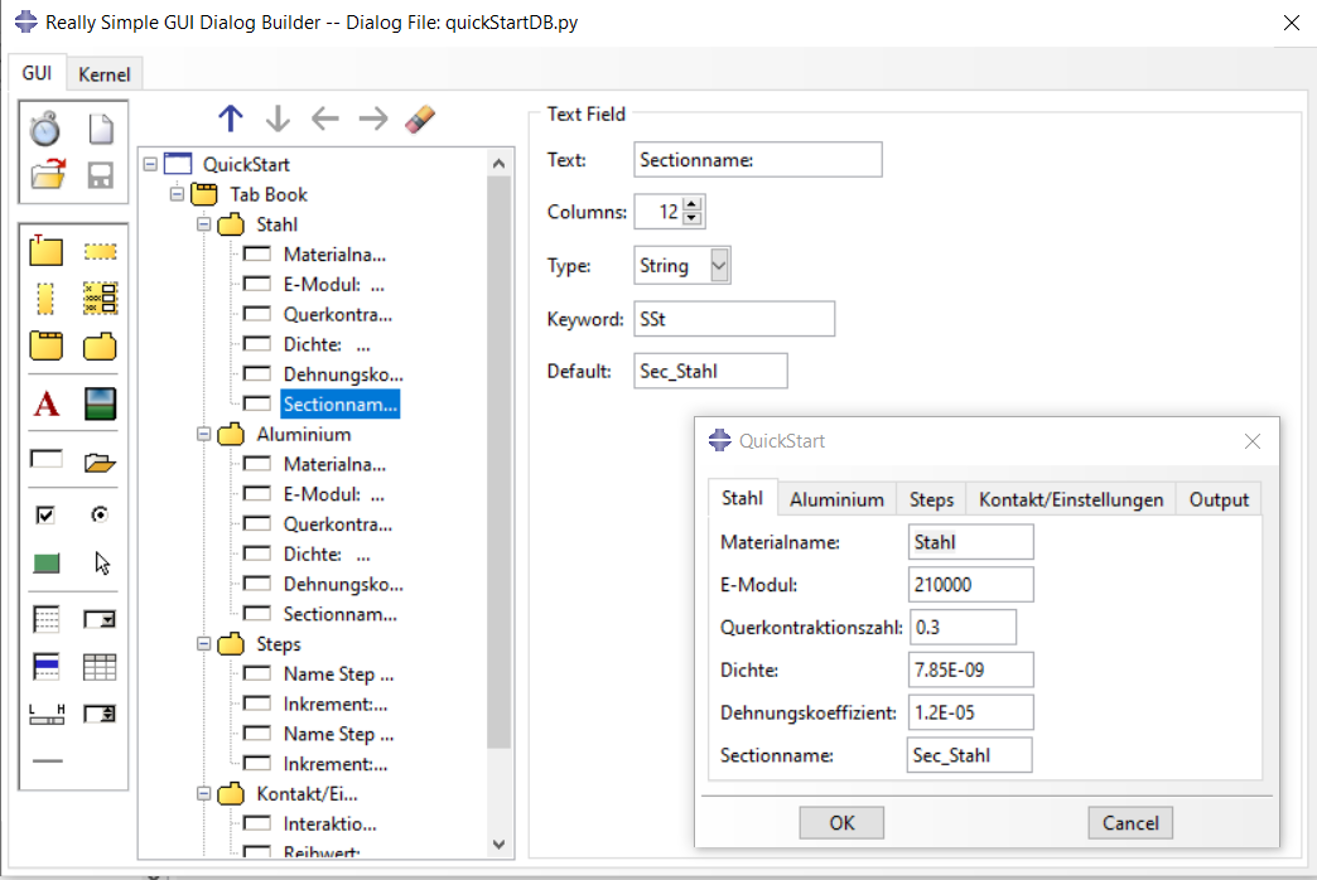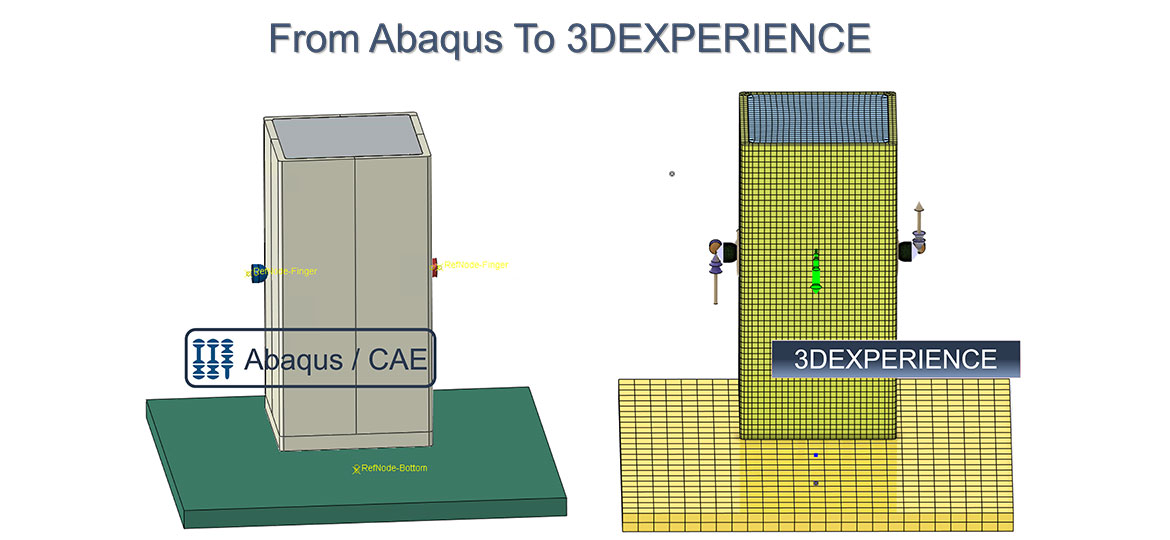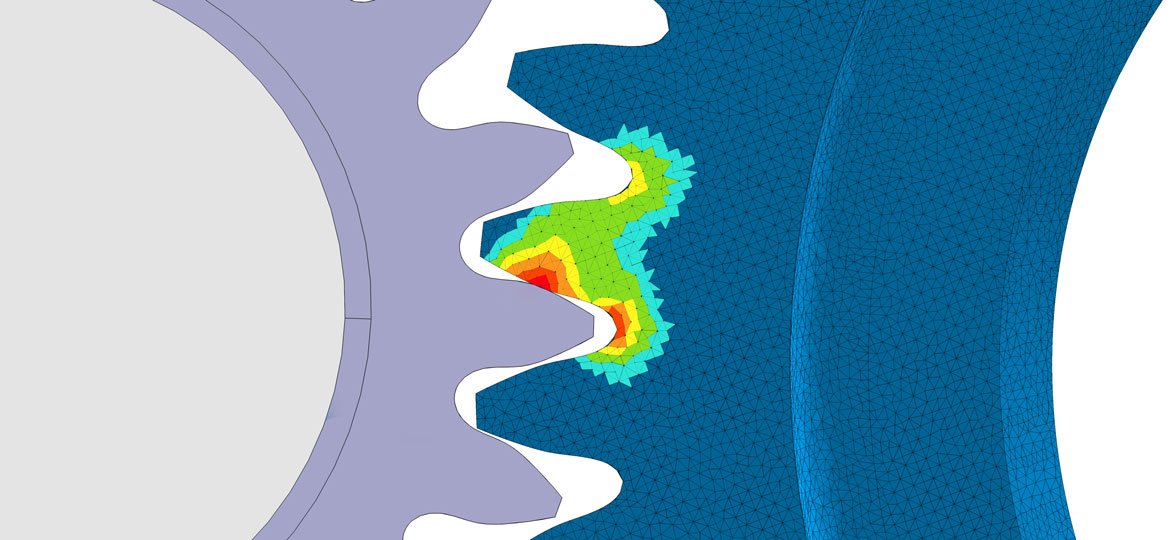Recurring workflows can be easily automated in Abaqus/CAE. For this purpose, Abaqus provides a few easy-to-use tools (for example, the Macro Recorder) and various interfaces.
In the past, I have often created and used Python scripts for process automation myself. I also worked on one or the other plugin for customers and did a major customization of Abaqus/CAE as part of a research project. However, this requires quite a lot of time – not least for studying the manuals.
In the course of creating this wiki, my friend Ulrich showed me that there is an interesting alternative for simple and fast automation of recurring work processes. The RSG Dialog Builder. Here, he not only drew my attention to it, but also directly built two beautiful applications.
RSG Dialog Builder provides a simple means of creating plugins in Abaqus/CAE. RSG stands for “Really Simple GUI“. Here, the RSG Builder consists of two parts, the GUI and the executing script in the kernel of Abaqus/CAE. The GUI is created directly in Dialog Builder. The basis for the executing script is created using the Macro Recorder. After a minor adjustment, you can import the script directly into Dialog Builder.
In the article‘RSG Dialog Builder in Abaqus/CAE – Generation of Screws‘, the RSG Builder is used to create standard components, in this case screws. When creating a new model in Abaqus/CAE, there are often recurring definitions of materials, sections or procedures (steps) at the beginning. In the article‘Abaqus/CAE: QuickStart Plugin with RSG Dialog Builder‘ we show how a plugin can significantly simplify these recurring definitions.
With these contributions, we want to encourage the incorporation of pragmatic automations in the daily workflow. We will be happy to support you in this. We will be happy to provide you with our plugins or customize them for you.

Ralf Paßmann has been working with Abaqus for 35 years. He started with the pipe-rolling simulation with Abaqus/Standard and an editor as a pre-processor in the late 80s. Initiating and supporting the migration project to use Abaqus/Explicit as crash code at BMW was a highlight of his work with Abaqus and the people behind it. Ralf has now been back in Abaqus sales for around ten years with the aim of supporting customers in the reliable use of simulation in development processes.






